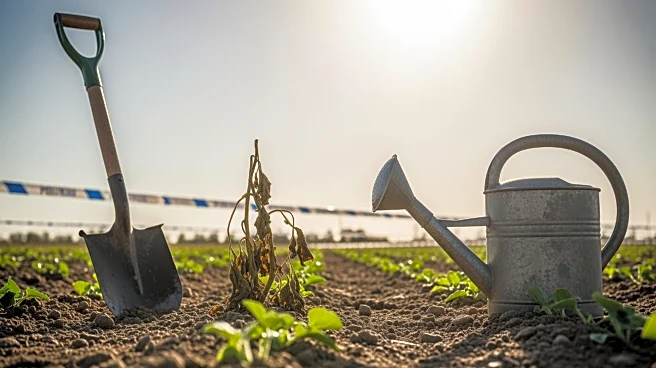What's Happening?
Professor David Luke, Strategic Director at the Firoz Laliji Institute for Africa, has identified inadequate financing as a key factor contributing to Africa's food insecurity. During a book presentation
event organized by Friedrich-Ebert-Stiftung, Luke emphasized the lack of significant investment in food production across the continent. He noted that despite the African Union's Comprehensive Agriculture Development Plan, which recommends that governments allocate at least 10% of their annual budgets to agriculture, few countries have met this target. Additionally, banks are hesitant to lend to the agricultural sector due to high interest rates and issues with using communal farmland as collateral. Luke also pointed out that foreign direct investment and aid are insufficiently directed towards agriculture, further exacerbating the issue.
Why It's Important?
The lack of funding for agriculture in Africa has significant implications for food security and economic stability. With many African countries facing food insecurity, the inability to compete with subsidized agricultural products from richer nations poses a challenge. This situation affects nutrition and food prices, impacting the overall health and economic well-being of the population. Addressing these funding gaps is crucial for enhancing agricultural productivity and reducing post-harvest losses, which could effectively double production. The broader impact includes potential improvements in rural infrastructure, transportation, and support services, which are essential for sustainable economic growth.
What's Next?
Efforts to address Africa's food insecurity will likely focus on increasing government support for farmers and improving infrastructure. Advocacy from the food sector aims to push for better security, financial support, and an enabling environment for farmers. These measures are intended to boost food production and restore Nigeria's status as a 'food basket of the nation.' Additionally, ongoing research and collaboration between institutions like FES and LSE may continue to explore solutions for food security and climate change impacts, providing a foundation for policy changes and strategic investments.
Beyond the Headlines
The ethical and cultural dimensions of Africa's food insecurity are significant, as they highlight the need for equitable resource distribution and sustainable agricultural practices. The reliance on imported food despite favorable weather conditions underscores the importance of developing local capacities and reducing dependency on external markets. Long-term shifts may include increased focus on climate adaptation strategies and leveraging scientific research to enhance agricultural resilience.










